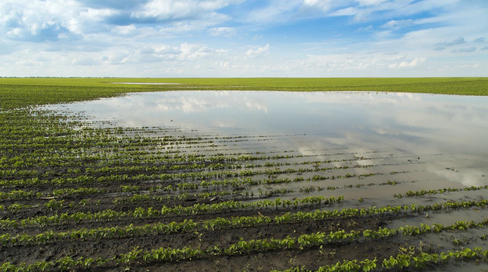Water Hazard 2.0: Continued Aquatic Contamination by Neonicotinoid Insecticides in the United States
May 3rd, 2017
Download the Report
Water Hazard 2.0, is an update to the 2015 CFS report, Water Hazard: Aquatic Contamination by Neonicotinoid Insecticides in the United States. This report shows continued widespread water contamination from neonicotinoid insecticides. Neonicotinoids are a class of insecticides known to have acute and chronic effects on honey bees and other pollinator species and are considered a major factor in overall bee population declines and poor health. In particular, the report draws attention to new research that shows a presence of these pesticides in water bodies across the country at levels known to be toxic to several aquatic invertebrates. The report also highlights a preliminary study that found detectable levels of neonicotinoids in 100% of tap water samples in Iowa. Neonicotiniod seed coatings, the largest use of these chemicals, are still not regulated by the Environmental Protection Agency (EPA).
In the time since the Water Hazard report was released, EPA published an aquatic risk assessment for the neonicotinoid chemical imidacloprid as part of its ongoing registration review of the neonicotinoid class. However, despite its findings indicating risk to aquatic environments at field realistic levels, the agency has refused to implement stronger regulations, restrict neonicotinoid uses, or enforce more comprehensive water quality monitoring. This is concerning as representative studies highlighted in this year's follow-up report show that continued exposure to neonicotinoid chemicals may cause irreparable neural damage to species impacted, leading to rippling negative effects throughout the food web. In addition to harms to aquatic ecosystems and species, a 2017 study from the University of Iowa which finds neonicotinoids in drinking water, and in which the authors conclude "neonicotinoids are likely present in other drinking water systems across the United States," draws attention to the large data gaps in safety testing and the potential risk to human health.
DOWNLOAD THE REPORT >>
Share this:
https://www.centerforfoodsafety.org/files/waterhazard20_47645.jpg
Related News




